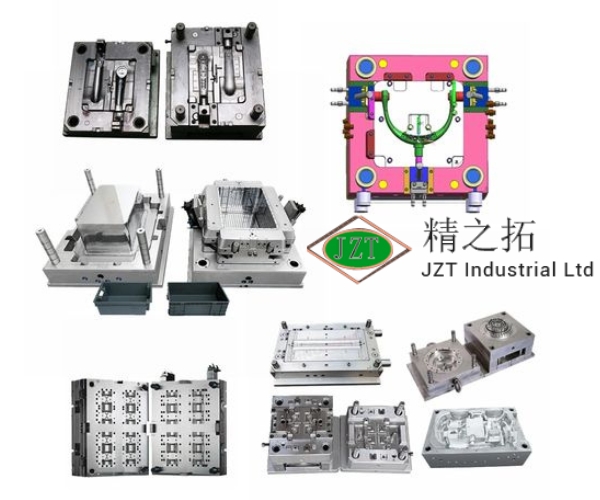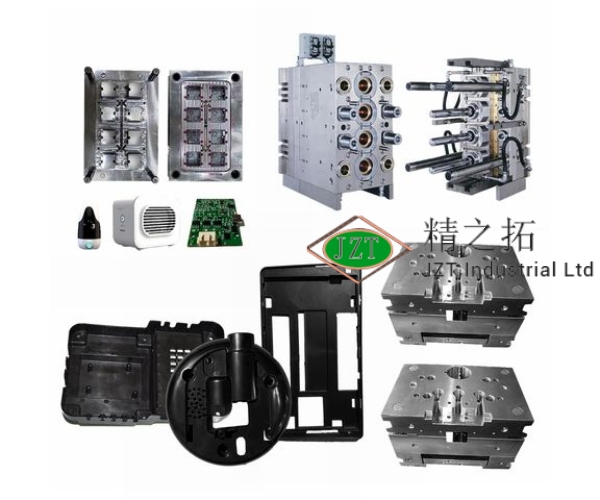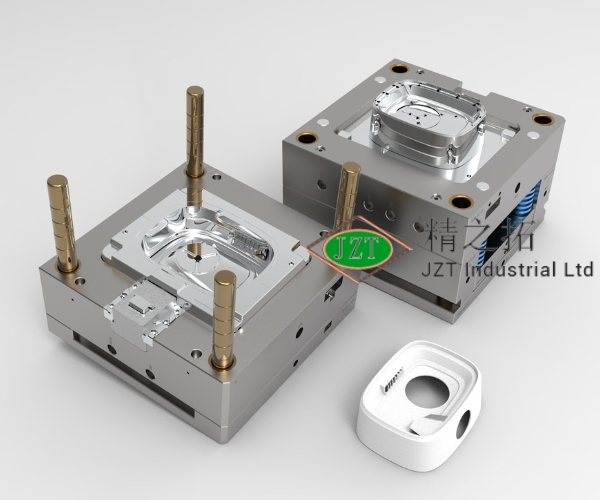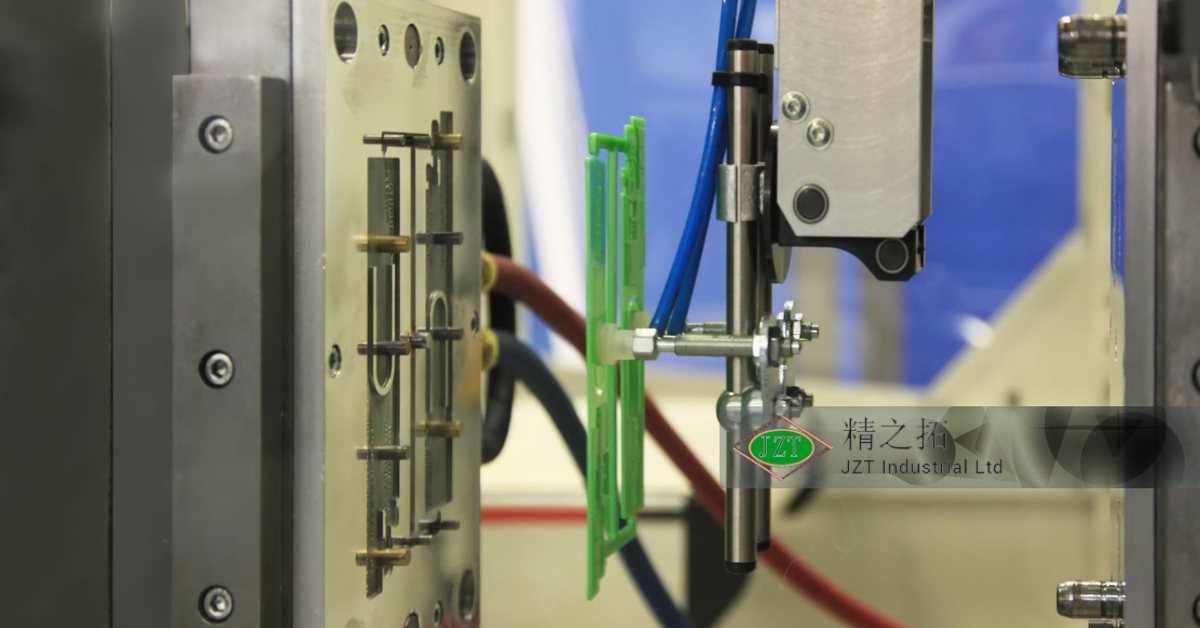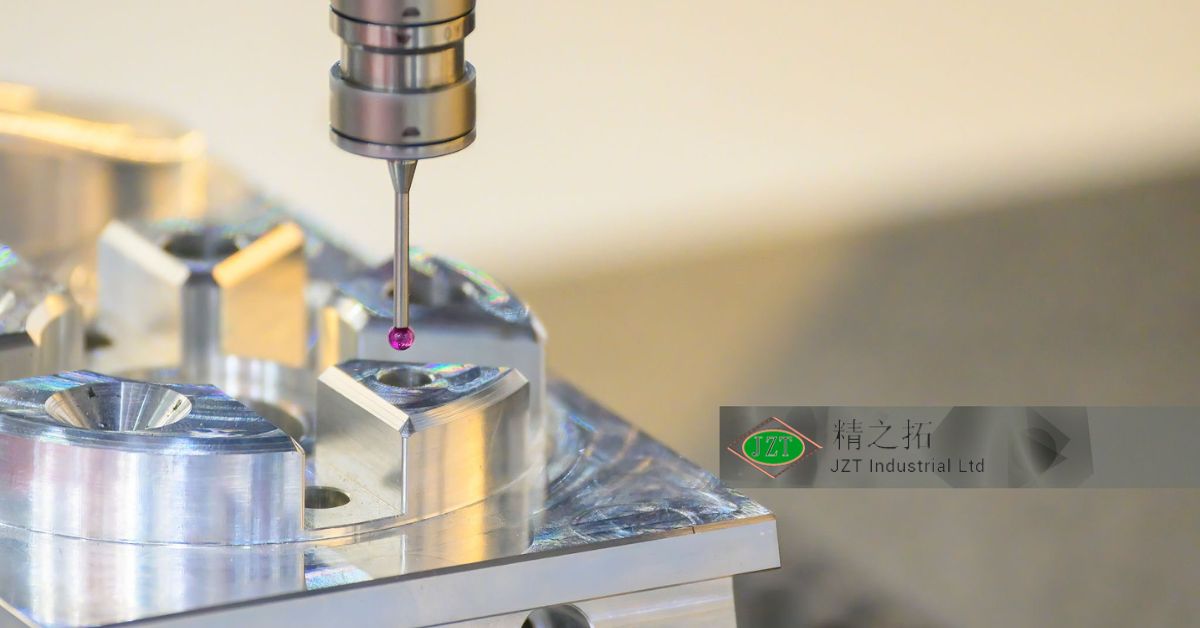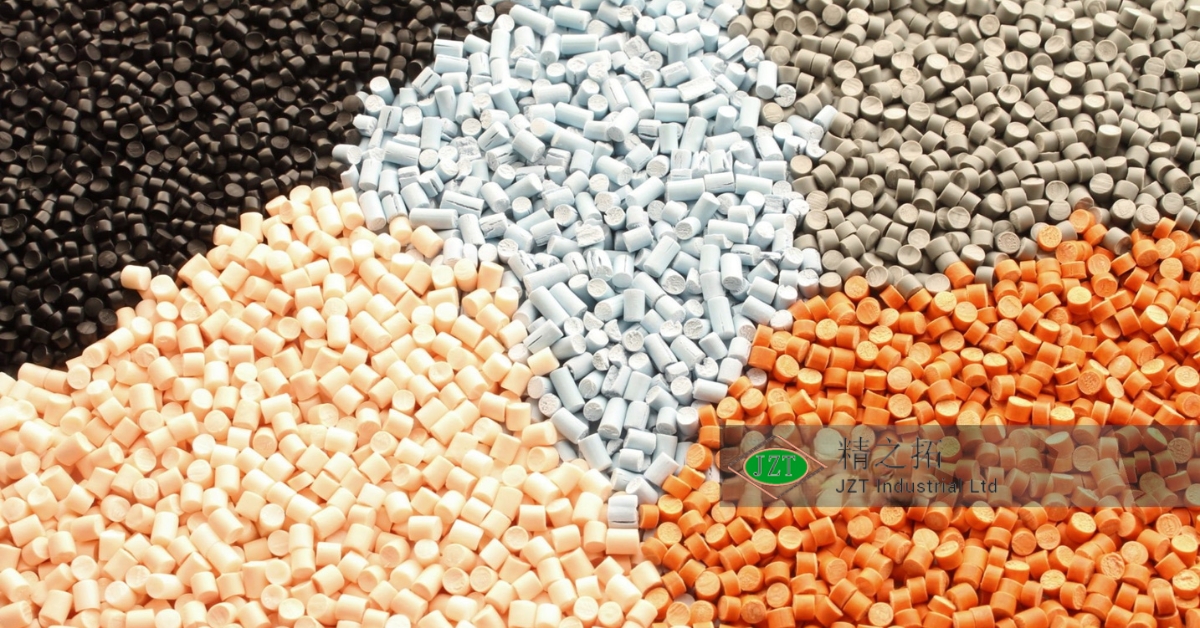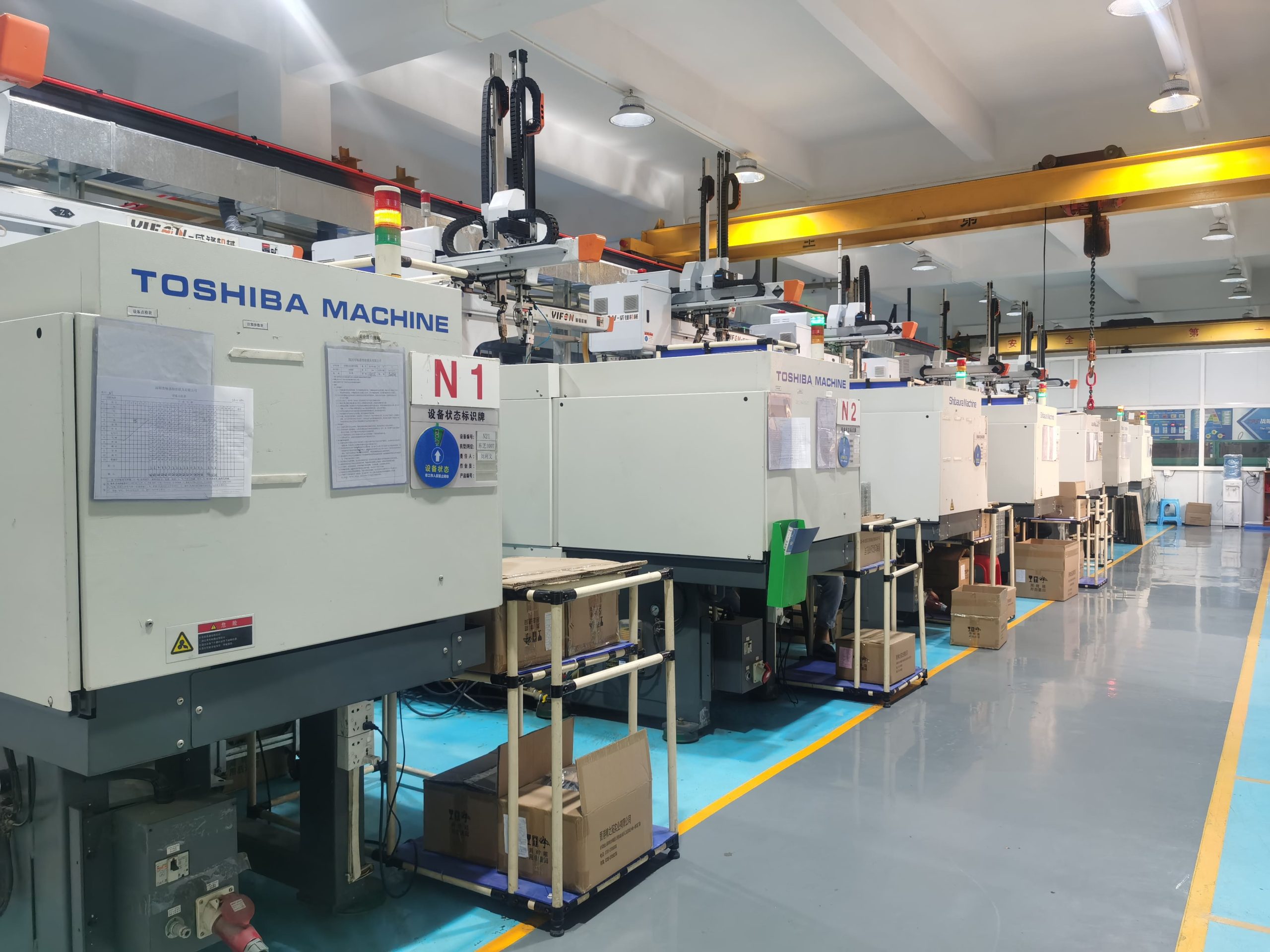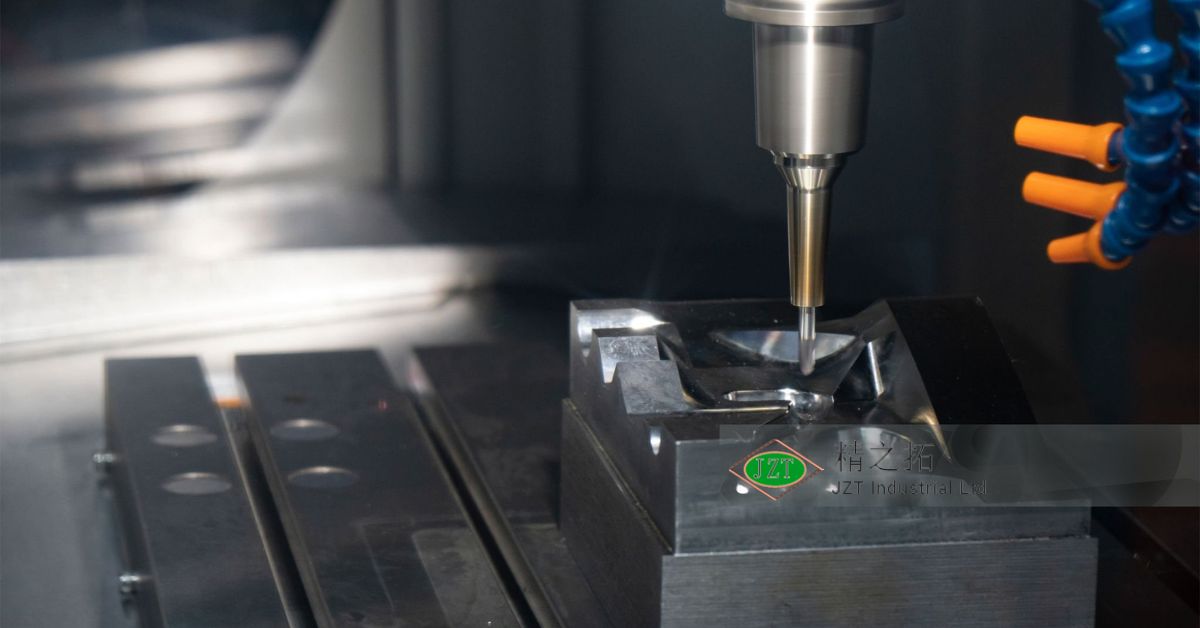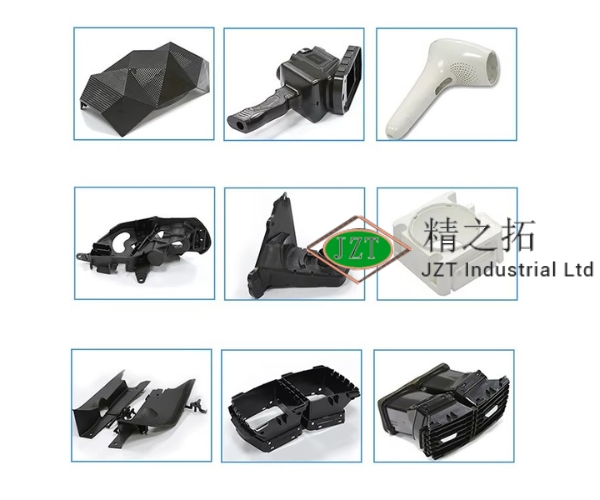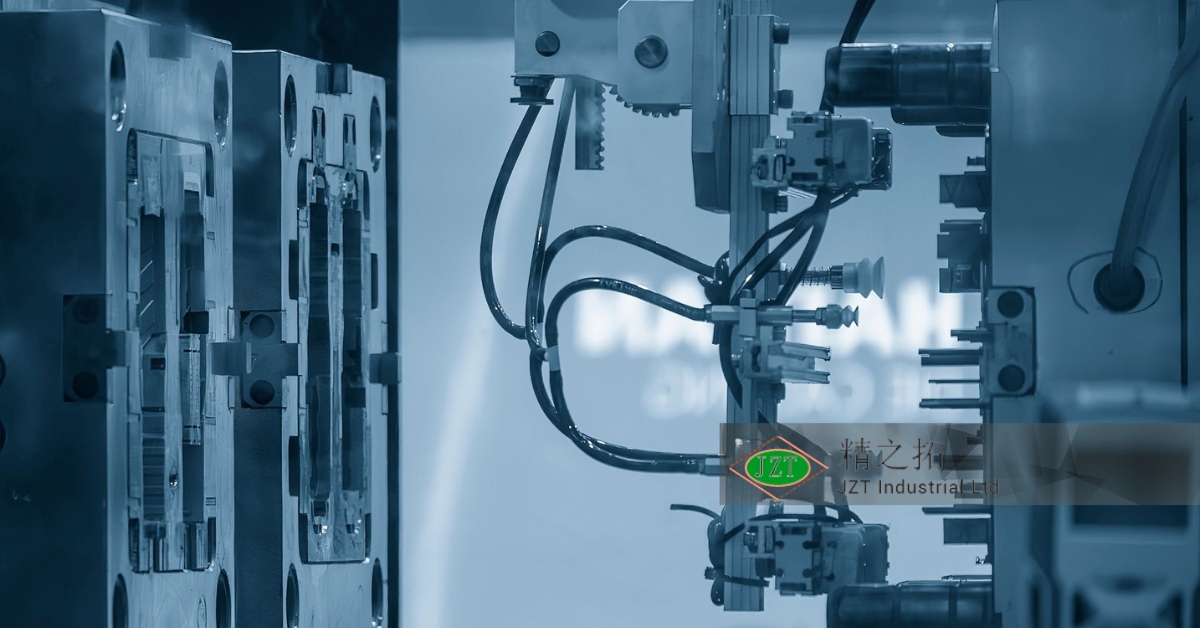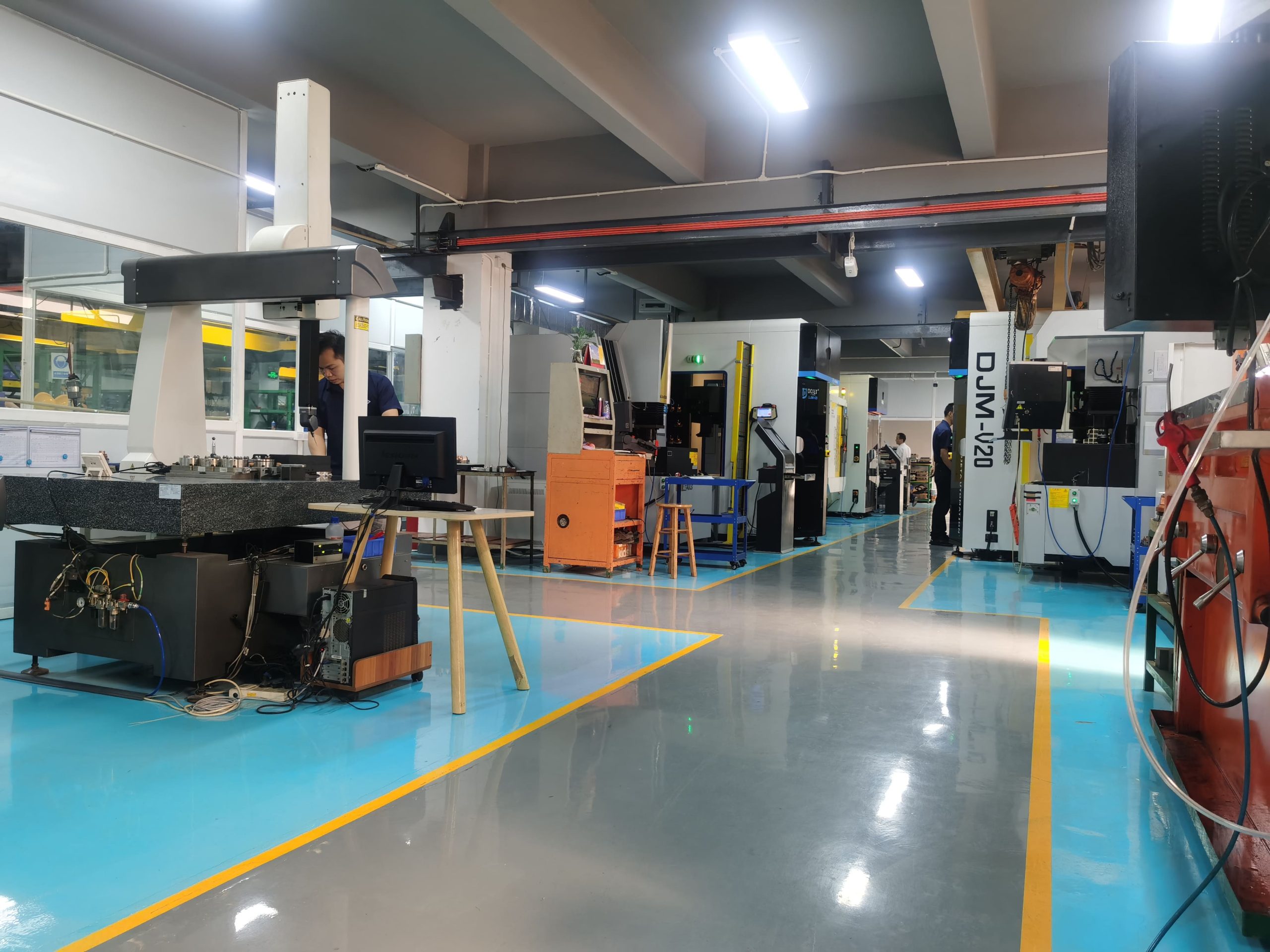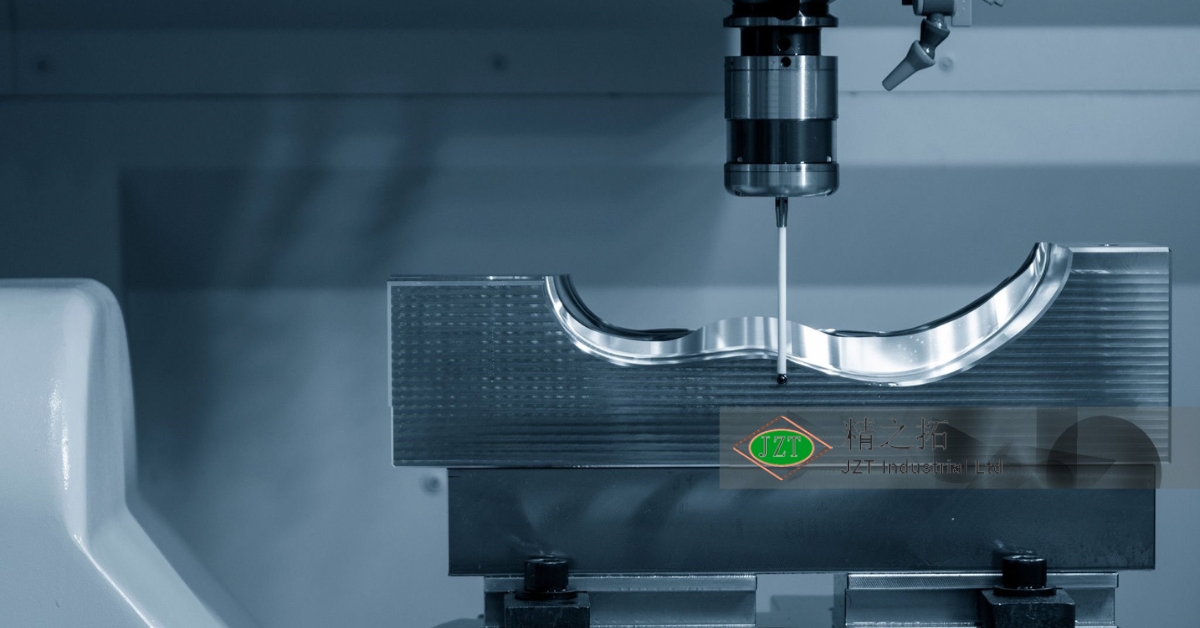Introduction
Custom plastic parts manufacturing has become an integral component of modern industrial production across a wide range of industries. From automotive to healthcare, aerospace to consumer electronics, the demand for precision-engineered plastic components continues to grow. This trend is driven by the versatility of plastic as a material, combined with the flexibility that custom manufacturing offers. Whether companies need parts designed for specific applications or require unique components that enhance product performance, custom plastic parts manufacturing delivers tailored solutions that meet those needs.
Custom plastic parts are essential for industries that require both precision and scalability. Unlike off-the-shelf plastic components, custom parts are designed specifically for the application they will serve, ensuring that they meet the exact performance requirements. These parts are often created using advanced technologies such as plastic injection molding, CNC machining, and 3D printing, which allow manufacturers to achieve high levels of accuracy, even for complex geometries.
In this article, we will explore the benefits of custom plastic parts manufacturing and how it offers advantages to various industries. We’ll look at the specific ways in which custom plastic components improve product design, enhance efficiency, and support cost-effective production. Furthermore, we’ll dive into how industries like automotive, medical, and consumer electronics are leveraging custom plastic parts to innovate and stay ahead of the competition.
What is Custom Plastic Parts Manufacturing?
Custom plastic parts manufacturing refers to the process of creating plastic components that are specifically designed and manufactured to meet the unique requirements of a particular application or industry. Unlike standard or off-the-shelf plastic parts, custom parts are made to exact specifications, ensuring they fit seamlessly into larger products or systems. Custom plastic manufacturing allows for greater control over the part’s dimensions, material selection, functionality, and appearance, which is why it’s favored across various sectors.
People Also Ask:
- How does custom plastic parts manufacturing work?\
Custom plastic parts manufacturing involves creating molds or designs tailored specifically for the part. The process typically uses methods such as plastic injection molding, CNC machining, or 3D printing to manufacture the parts. Each method has different advantages, like injection molding for mass production or 3D printing for rapid prototyping.
There are several manufacturing processes used to create custom plastic parts, each with its strengths depending on the desired output. The most commonly used methods include:
Injection Molding
Plastic injection molding is one of the most popular methods for producing custom plastic parts. It involves injecting molten plastic into a custom-designed mold to create complex parts with high precision. Injection molding is ideal for mass production because of its speed, repeatability, and ability to create parts with intricate designs.
CNC Machining
Computer Numerical Control (CNC) machining uses computer-guided tools to cut, drill, and shape plastic materials into specific parts. This method is highly accurate and is best suited for creating low-volume or high-precision custom parts. CNC machining is often used for prototypes or parts that require tight tolerances.
3D Printing (Additive Manufacturing)
3D printing has revolutionized the custom manufacturing space by allowing for rapid prototyping and the creation of complex geometries that are difficult or impossible to achieve with traditional methods. In 3D printing, plastic is layered to form the desired part, which makes it cost-effective for low-volume runs and intricate designs.
Custom plastic parts manufacturing offers significant advantages over standard parts, including the ability to meet specific performance, design, and regulatory requirements. Manufacturers can choose from a wide variety of plastic materials to achieve the desired properties, such as heat resistance, flexibility, or strength. Additionally, custom parts can be designed to simplify assembly or improve product durability, which is essential in industries like automotive and aerospace.
Benefits of Custom Plastic Parts for Various Industries
Custom plastic parts manufacturing brings numerous advantages to companies across different industries. From improving product design flexibility to enhancing performance, custom plastic parts are a valuable asset in today’s competitive market. Below, we explore some of the key benefits that these components offer.
People Also Ask:
- Why are custom plastic parts better than standard parts?
Custom plastic parts are designed to meet the specific requirements of an application, offering a better fit, improved performance, and material optimization. This leads to enhanced durability, precision, and efficiency compared to standard off-the-shelf parts, which may not be tailored for specialized uses.
Enhanced Product Design Flexibility
One of the main benefits of custom plastic parts is the design flexibility they offer. With custom manufacturing, engineers and product designers are not limited by the constraints of pre-made, off-the-shelf parts. Instead, they can create components with unique shapes, features, and dimensions that are tailored to specific applications. This flexibility allows manufacturers to innovate and produce products that stand out in the market.
For instance, in the automotive industry, custom plastic parts can be designed to fit the exact dimensions of a car’s interior or exterior, improving both aesthetics and functionality. Designers can create complex geometries, such as custom dashboard panels or air vent systems, that would be impossible or costly to produce with metal or other materials.
In consumer electronics, custom plastic parts allow manufacturers to create sleek, compact designs that maximize the functionality of devices without adding unnecessary bulk. Custom plastic enclosures, for example, can be designed to fit perfectly around internal components, improving product durability while maintaining a modern, appealing look.
Improved Efficiency and Performance
Another significant advantage of custom plastic parts manufacturing is the ability to enhance the efficiency and performance of products. Because custom parts are designed specifically for their intended use, they are often more efficient in terms of material usage, weight, and functionality compared to standard parts.
In the aerospace industry, for example, lightweight custom plastic components can be used in aircraft to reduce overall weight, leading to improved fuel efficiency and lower operating costs. High-performance polymers can also be used to withstand extreme conditions such as high altitudes and temperatures, ensuring that parts maintain their integrity throughout the aircraft’s lifecycle.
Custom plastic parts can also be engineered to improve the performance of medical devices. By designing parts that are specifically tailored to the needs of medical professionals, manufacturers can create more reliable, durable, and precise instruments. Whether it’s a surgical tool or a diagnostic device, custom plastic components contribute to better patient outcomes and safer, more effective treatments.
Cost-Effectiveness in the Long Run
While the upfront cost of creating custom plastic parts can be higher than purchasing standard parts, custom parts often prove to be more cost-effective in the long run. This is particularly true for high-volume production runs, where custom molds and tooling can be amortized over a large number of units, driving down the per-unit cost.
Custom plastic parts also reduce material waste, as they are designed to meet exact specifications, minimizing the need for additional trimming or finishing. Additionally, by combining multiple components into a single custom part, manufacturers can reduce the complexity of their assembly processes, saving time and labor costs.
For industries like packaging and automotive, where efficiency is crucial to profitability, custom plastic parts help streamline production and reduce overall manufacturing expenses. Moreover, by using durable materials that are designed for specific applications, companies can avoid the need for frequent repairs or replacements, further reducing costs.
Faster Time-to-Market
Custom plastic parts manufacturing, especially with the aid of technologies like 3D printing and rapid prototyping, enables companies to get their products to market faster. With traditional manufacturing methods, the process of developing and testing prototypes can be time-consuming and expensive. However, custom manufacturing allows for rapid iterations, enabling designers to test new concepts quickly and make necessary adjustments without significant delays.
People Also Ask:
- How does custom plastic parts manufacturing speed up production?\
Custom plastic manufacturing speeds up production by allowing for rapid prototyping and reducing the need for extensive design modifications. Technologies like 3D printing help companies create and test multiple iterations of a design quickly, while plastic injection molding provides fast, large-scale production once the design is finalized.
This is particularly important for industries like consumer electronics, where product lifecycles are short, and the ability to bring new innovations to market quickly is key to staying competitive. By leveraging custom plastic manufacturing, companies can reduce lead times, respond to market demands faster, and maintain an edge over competitors.
In the medical device industry, faster time-to-market can be a critical advantage, especially when responding to new healthcare challenges or regulatory changes. Custom plastic parts enable manufacturers to prototype and produce medical devices quickly, ensuring that they can meet the demands of healthcare providers and patients in a timely manner.
Lightweight and Durable Solutions
One of the standout advantages of custom plastic parts is their ability to provide lightweight yet durable solutions. Plastic materials, when selected and engineered correctly, can offer the same or better strength and durability as traditional materials like metal, but at a fraction of the weight. This is particularly beneficial in industries such as automotive and aerospace, where reducing weight leads to better fuel efficiency and overall performance.
Custom plastic parts can be designed to withstand harsh environments, such as exposure to extreme temperatures, chemicals, or UV radiation. For instance, high-performance plastics like polyether ether ketone (PEEK) or reinforced composites are commonly used in aerospace applications due to their strength, heat resistance, and durability in challenging conditions.
In addition to their durability, custom plastic parts can be made using advanced polymers that resist corrosion, reducing the need for maintenance and extending the lifespan of the part. This makes them an excellent choice for outdoor equipment, industrial machinery, and automotive components that must endure constant wear and tear.
Industry-Specific Applications of Custom Plastic Parts
The versatility of custom plastic parts makes them invaluable across a wide range of industries. Each sector has its own unique requirements, and custom plastic manufacturing allows for the creation of parts that meet these specific needs.
People Also Ask:
- Which industries benefit the most from custom plastic parts manufacturing?\
Industries such as automotive, aerospace, medical, consumer electronics, and packaging benefit the most from custom plastic parts manufacturing. These industries rely on custom parts for performance, durability, and the ability to meet specific regulatory and design requirements.
Automotive Industry
In the automotive sector, custom plastic parts are used for a variety of applications, both under the hood and within the vehicle’s interior and exterior. Plastics are favored for their lightweight properties, which help improve fuel efficiency and reduce overall vehicle weight. Custom parts such as dashboard components, bumper panels, and air intake systems are commonly produced using plastic injection molding.
The automotive industry also benefits from the flexibility of custom plastic parts when it comes to integrating electronic components. For example, custom molded housings for sensors and control systems allow manufacturers to embed advanced technology into the vehicle’s design without compromising space or functionality.
Moreover, plastic parts in vehicles contribute to safety features. Plastic airbag housings, seatbelt components, and crash impact zones are designed to absorb energy and reduce injury in the event of an accident. By using custom plastic parts, automotive manufacturers can optimize both the safety and performance of their vehicles.
Conclusion
Custom plastic parts manufacturing provides a range of benefits that are invaluable across many industries. From enhanced product design flexibility and improved performance to long-term cost savings and sustainability, the ability to create tailored plastic components allows businesses to innovate and stay competitive.
Whether it’s designing lightweight automotive components, creating durable medical devices, or producing sustainable packaging solutions, custom plastic parts offer endless possibilities for enhancing product functionality and reducing costs. Industries that leverage custom plastic manufacturing enjoy the freedom to create parts that meet exact specifications, perform reliably under demanding conditions, and contribute to a more sustainable future.
People Also Ask:
- What should I consider when choosing a plastic parts manufacturer?\
When choosing a plastic parts manufacturer, consider their experience in your industry, the range of manufacturing technologies they offer, their quality assurance processes, and their ability to meet lead times and production volumes. Working with a manufacturer who has expertise in custom plastic parts and a strong track record will ensure that your product meets both performance and regulatory requirements.
Medical and Healthcare Industry
The medical and healthcare industry relies heavily on custom plastic parts for medical devices, diagnostic tools, and surgical instruments. Precision and hygiene are critical in this sector, and the ability to create biocompatible, sterilizable, and reliable parts is essential for patient care and safety. Custom plastic parts can be engineered to meet stringent FDA regulations and are frequently used in devices that need to be durable, lightweight, and resistant to both impact and sterilization processes.
People Also Ask:
- How are custom plastic parts used in medical devices?\
Custom plastic parts in medical devices are used for a variety of applications, including prosthetics, drug delivery systems, diagnostic equipment, and surgical tools. They are tailored to be biocompatible and often designed to be disposable or capable of withstanding sterilization without compromising their integrity or functionality.
In this sector, plastics such as polycarbonate, polypropylene, and polyethylene are commonly used due to their ability to endure repeated sterilization cycles without degrading. In prosthetics and implants, for example, custom plastic parts are used to create patient-specific solutions that offer both functionality and comfort. The use of additive manufacturing (3D printing) enables rapid prototyping of custom plastic parts, allowing healthcare providers to develop and test medical devices more quickly, ultimately improving patient care.
Furthermore, medical packaging benefits greatly from custom plastic parts manufacturing. Custom-molded packaging solutions are developed to fit specific medical products, ensuring that they are protected from contamination while being easy to open and use in sterile environments.
Consumer Electronics
In the consumer electronics industry, the demand for sleek, compact, and durable designs has driven the need for custom plastic parts. Plastics offer the ideal combination of strength, flexibility, and cost-effectiveness, making them a perfect choice for housing electronics and protecting delicate internal components.
People Also Ask:
- Why are custom plastic parts important in consumer electronics?\
Custom plastic parts are important in consumer electronics because they allow manufacturers to create lightweight, durable, and aesthetically pleasing designs that protect internal components. They are also essential for heat management and integrating electronic features into compact spaces, such as smartphone housings or laptop casings.
Custom plastic parts allow manufacturers to optimize designs for both functionality and aesthetics, such as creating ergonomic shapes for handheld devices or using transparent or translucent plastics for stylish, modern finishes. Heat management is another critical function that custom plastic parts serve in consumer electronics. Special plastics with high thermal resistance can be designed to dissipate heat efficiently, preventing damage to internal components and ensuring the longevity of the product.
Mobile phones, laptops, gaming consoles, and wearable technology often rely on custom plastic enclosures and components that allow for creative, lightweight designs while protecting the sensitive electronics inside. By leveraging plastic injection molding and CNC machining, manufacturers can produce high-precision parts in large volumes, ensuring that each device is both functional and visually appealing.
Aerospace Industry
In the aerospace industry, custom plastic parts play a critical role in reducing the weight of aircraft, improving fuel efficiency, and ensuring that components can withstand extreme conditions such as high temperatures and altitudes. The industry demands materials that are both lightweight and durable, which is why advanced polymers and composites are often used to replace metal components.
People Also Ask:
- What plastics are used in aerospace applications?\
High-performance plastics such as polyetheretherketone (PEEK), polytetrafluoroethylene (PTFE), and reinforced composites are commonly used in aerospace applications due to their strength, heat resistance, and lightweight properties. These materials help reduce the overall weight of aircraft, improving fuel efficiency and performance.
Custom plastic parts in aerospace applications include components such as interior panels, cockpit instrumentation, seat components, and even parts of the engine. These parts need to be flame-retardant, resistant to temperature fluctuations, and able to withstand the stresses of flight. Materials such as PEEK and polyimides are frequently used in aerospace due to their ability to endure harsh conditions without degrading.
Moreover, custom plastic parts help improve aerodynamics. For instance, custom aerodynamic fairings and covers, made from lightweight plastic composites, reduce drag and contribute to fuel savings. The aerospace industry benefits from the precise and intricate shapes that plastic injection molding and CNC machining allow, making it easier to create parts that fit the exact specifications required for each aircraft.
Packaging Industry
The packaging industry is another sector that benefits greatly from custom plastic parts manufacturing. Custom plastic packaging solutions are designed to meet the specific needs of products, offering protection, sustainability, and branding opportunities. In industries like food and beverage, pharmaceuticals, and consumer goods, custom packaging ensures that products remain fresh, secure, and tamper-proof throughout their lifecycle.
People Also Ask:
- What are the benefits of custom plastic packaging?\
Custom plastic packaging offers benefits such as tailored designs that fit specific products, increased protection against environmental factors, branding opportunities with unique shapes and designs, and the ability to use eco-friendly or recyclable materials to meet sustainability goals.
Custom plastic parts allow manufacturers to design packaging that perfectly fits the dimensions of their products, ensuring efficient use of space and reducing material waste. In the pharmaceutical industry, for example, custom packaging solutions can include tamper-evident designs, child-resistant closures, and airtight seals that maintain the integrity of medications.
In the food and beverage sector, custom plastic packaging helps extend the shelf life of perishable products. By using plastics with barrier properties that protect against moisture, oxygen, and UV light, manufacturers can ensure that their products remain fresh longer. Custom plastic packaging can also be designed to be lightweight and stackable, reducing shipping costs and environmental impact.
Sustainability is a growing focus in the packaging industry, and custom plastic manufacturing offers solutions in this area as well. By using recycled plastics or biodegradable materials, companies can reduce their environmental footprint while still benefiting from the durability and versatility of plastic.
Advantages of Custom Material Selection in Plastic Parts
The ability to select specific materials is one of the key benefits of custom plastic parts manufacturing. Depending on the application, different materials offer distinct advantages, such as improved strength, flexibility, or chemical resistance. Custom plastic parts allow manufacturers to choose the right material for the job, ensuring that the finished product performs as intended.
Tailoring Materials for Industry-Specific Needs
Every industry has unique material requirements, and custom plastic parts manufacturing allows companies to select materials that meet their specific needs. For example, the medical industry often requires biocompatible plastics that are safe for use in the human body, while the electronics industry may need flame-retardant materials to protect devices from overheating.
Selecting the right material for each application ensures that the custom plastic part will meet the performance, safety, and regulatory standards of the industry. Engineers can choose materials based on factors such as tensile strength, impact resistance, temperature tolerance, and chemical resistance, all of which are critical for the part’s success in its intended environment.
Enhanced Durability and Resistance
In many cases, custom plastic parts are designed for environments that require enhanced durability and resistance to external factors like chemicals, UV exposure, and extreme temperatures. High-performance plastics such as nylon, acrylonitrile butadiene styrene (ABS), and polyethylene (PE) are frequently chosen for their ability to endure demanding conditions.
For example, in automotive applications, plastics must resist the high temperatures and chemical exposures found in engine compartments, while plastics used in aerospace must maintain their integrity at high altitudes and under severe thermal stress.
Conclusion
Custom plastic parts manufacturing provides a multitude of benefits across a range of industries, from automotive to aerospace and healthcare to consumer electronics. The ability to design parts that meet specific needs allows companies to optimize performance, reduce costs, and innovate in ways that would not be possible with off-the-shelf solutions.
Custom plastic parts are not only more efficient and cost-effective in the long run, but they also contribute to faster time-to-market and enhanced sustainability. By utilizing advanced manufacturing processes like plastic injection molding, CNC machining, and 3D printing, companies can create high-quality, durable, and environmentally friendly products that meet the demands of today’s markets.
Whether you’re in search of lightweight materials for aerospace applications, precision components for medical devices, or sustainable packaging solutions, custom plastic parts manufacturing offers the flexibility and versatility needed to succeed in competitive industries.
Partnering with an experienced plastic parts manufacturer ensures that your company will receive the highest quality parts, tailored to meet the performance, regulatory, and aesthetic requirements of your products. With the right custom plastic parts, your business can drive innovation, improve product performance, and achieve long-term success in your industry.

